January 20, 2021
Search Results for: lockdown
January 19, 2021
Improving air quality is key to making people feel safer
by Jayne Smith • Environment, News, Wellbeing
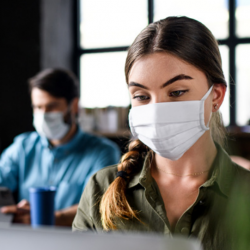 Improving air quality in the fight against COVID-19 could give businesses the edge over their competitors and attract more customers, according to a top UK university scientist. Writing in a new report for facilities services provider phs Group, Cambridge University Professor Paul Linden highlights the growing evidence for the airborne transmission of coronavirus and that tackling indoor air quality must be at the forefront of creating COVID-safe environments. (more…)
Improving air quality in the fight against COVID-19 could give businesses the edge over their competitors and attract more customers, according to a top UK university scientist. Writing in a new report for facilities services provider phs Group, Cambridge University Professor Paul Linden highlights the growing evidence for the airborne transmission of coronavirus and that tackling indoor air quality must be at the forefront of creating COVID-safe environments. (more…)
January 15, 2021
Pandemic has improved employee engagement levels say employers
by Jayne Smith • News, Wellbeing
 Employee engagement levels may have actually improved during the COVID-19 pandemic, claims a recent survey undertaken by intermediary Howden Employee Benefits & Wellbeing. (more…)
Employee engagement levels may have actually improved during the COVID-19 pandemic, claims a recent survey undertaken by intermediary Howden Employee Benefits & Wellbeing. (more…)
January 14, 2021
Over two-thirds of British office workers currently suffer from imposter syndrome
by Jayne Smith • Flexible working, News, Working culture
 Asana, the work management platform, has launched a new research study, which highlights the increased levels of imposter syndrome, anxiety and burnout now being felt by British office workers. At a time when many workers are now facing the reality of a new national lockdown, over two-thirds (69 percent) claim they are currently suffering from imposter syndrome, and nearly half (45 percent) say this has increased while operating in a remote working environment. (more…)
Asana, the work management platform, has launched a new research study, which highlights the increased levels of imposter syndrome, anxiety and burnout now being felt by British office workers. At a time when many workers are now facing the reality of a new national lockdown, over two-thirds (69 percent) claim they are currently suffering from imposter syndrome, and nearly half (45 percent) say this has increased while operating in a remote working environment. (more…)
January 13, 2021
Office design will respond to the events of the past year as it always has – by getting better
by Oliver Ronald • Comment, Workplace design
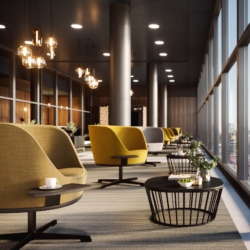 You may have heard that history repeats itself, but that’s not really true. It doesn’t repeat. It rhymes. And nowhere is this more true than when it comes to office design. It’s worth bearing this in mind when we consider the effects of the events of 2020. Not only the pandemic and lockdown, but also the longer term economic, social and individual consequences. The details of this may be unprecedented, as many people have suggested, but the dynamics of it are not. We have not been here before, but we’ve been somewhere very like it. (more…)
You may have heard that history repeats itself, but that’s not really true. It doesn’t repeat. It rhymes. And nowhere is this more true than when it comes to office design. It’s worth bearing this in mind when we consider the effects of the events of 2020. Not only the pandemic and lockdown, but also the longer term economic, social and individual consequences. The details of this may be unprecedented, as many people have suggested, but the dynamics of it are not. We have not been here before, but we’ve been somewhere very like it. (more…)
January 12, 2021
Burnt out workers need to regain some balance
by Dan Zakai • Comment, Wellbeing, Workplace design
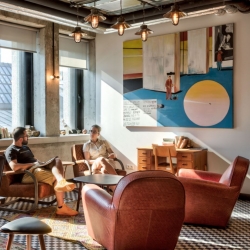 The pandemic and months of Zoom calls and remote work have begun to wear on us, so much so that in a recent survey from Blind – the anonymous workplace community app – 68 percent of respondents said that they are experiencing more feelings of being burnt out now, than they were before the pandemic began. Perhaps unsurprisingly, 29 percent of the respondents said their relationship with their direct boss was now worse than it had been before they began working remotely. And it’s not just top-down relationships at work that have deteriorated. (more…)
The pandemic and months of Zoom calls and remote work have begun to wear on us, so much so that in a recent survey from Blind – the anonymous workplace community app – 68 percent of respondents said that they are experiencing more feelings of being burnt out now, than they were before the pandemic began. Perhaps unsurprisingly, 29 percent of the respondents said their relationship with their direct boss was now worse than it had been before they began working remotely. And it’s not just top-down relationships at work that have deteriorated. (more…)
January 12, 2021
Employers failing to tackle age bias in recruitment
by Jayne Smith • News, Working culture
 Employers are failing to identify and tackle potential age bias in their recruitment process, with most employers interviewed not seeing it as a ‘problem’ in their organisation, according to a new report by the Centre for Ageing Better. (more…)
Employers are failing to identify and tackle potential age bias in their recruitment process, with most employers interviewed not seeing it as a ‘problem’ in their organisation, according to a new report by the Centre for Ageing Better. (more…)
January 12, 2021
Workers feel overworked as a result of the pandemic
by Jayne Smith • News, Wellbeing, Working lives
 Hardworking professionals are feeling the effects of longer working days and unpaid overtime, according to new research by law firm, Wright Hassall. The study claims that on average workers are performing nine or more hours of overtime in a given week, which totals more than one working day, compared to just three or more hours before the start of the pandemic. The research also claims that more than half (52 percent) are actually doing so without being paid for this. (more…)
Hardworking professionals are feeling the effects of longer working days and unpaid overtime, according to new research by law firm, Wright Hassall. The study claims that on average workers are performing nine or more hours of overtime in a given week, which totals more than one working day, compared to just three or more hours before the start of the pandemic. The research also claims that more than half (52 percent) are actually doing so without being paid for this. (more…)
January 5, 2021
We shouldn’t become village idiots in our new ways of life
by Mark Eltringham • Cities, Comment, Flexible working, Technology
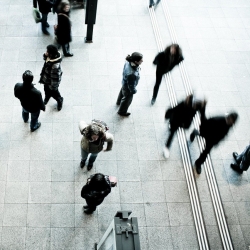 The idea of a Global Village comes loaded with a number of idyllic connotations. Most of them derive from the use of the word village itself, which triggers the idea of a community in our minds. Yet even the man who coined and popularised the term in the 1950s and 60s to describe a world contracted by new media understood that there are always complications whenever technology rubs up against human beings. (more…)
The idea of a Global Village comes loaded with a number of idyllic connotations. Most of them derive from the use of the word village itself, which triggers the idea of a community in our minds. Yet even the man who coined and popularised the term in the 1950s and 60s to describe a world contracted by new media understood that there are always complications whenever technology rubs up against human beings. (more…)
December 18, 2020
Events of 2020 have proved the value of personal resilience
by Silja Litvin • Comment, Wellbeing
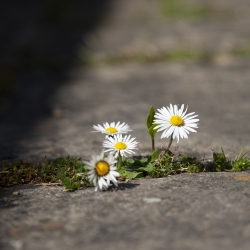 No-one could have predicted what 2020 would deliver. A pandemic, lockdown, moving the workplace into the home. We are in uncharted waters. The Oxford English Dictionary defines resilience as being able to withstand or recover quickly from difficult conditions. Resilience is an almost stoic quality, and a pandemic a time of crisis. It almost feels like they are a match made in heaven. But how does this affect organisations? What can be done? Is it really that important to build employees’ resilience? (more…)
No-one could have predicted what 2020 would deliver. A pandemic, lockdown, moving the workplace into the home. We are in uncharted waters. The Oxford English Dictionary defines resilience as being able to withstand or recover quickly from difficult conditions. Resilience is an almost stoic quality, and a pandemic a time of crisis. It almost feels like they are a match made in heaven. But how does this affect organisations? What can be done? Is it really that important to build employees’ resilience? (more…)
December 18, 2020
Working from home stresses have had the greatest impact on women
by Neil Franklin • Flexible working, News, Wellbeing
 A review of research in organisational and workplace psychology conducted by an international team of academics claims that working from home has been more disruptive for women than men. The review paper, entitled COVID-19 and the Workplace: Implications, Issues, and Insights for Future Research and Action and originally published in American Psychologist, features urgent insight from UCL School of Management Professor, Sunny Lee into the sex- and gender-related implications of changes in work practices that have taken place over the course of 2020. (more…)
A review of research in organisational and workplace psychology conducted by an international team of academics claims that working from home has been more disruptive for women than men. The review paper, entitled COVID-19 and the Workplace: Implications, Issues, and Insights for Future Research and Action and originally published in American Psychologist, features urgent insight from UCL School of Management Professor, Sunny Lee into the sex- and gender-related implications of changes in work practices that have taken place over the course of 2020. (more…)








 Research by
Research by 


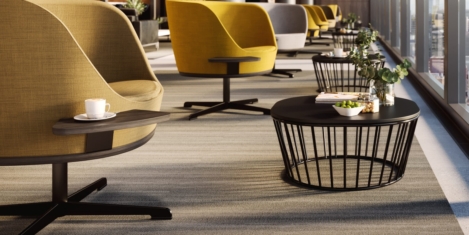
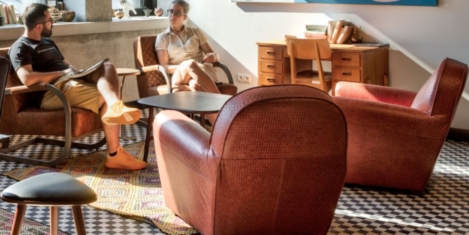


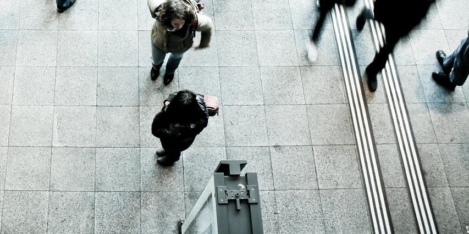
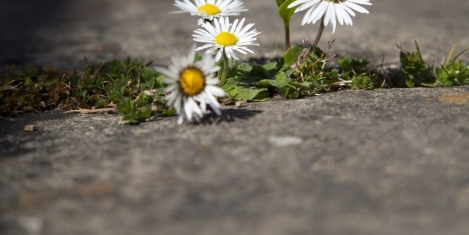










January 21, 2021
Hybrid working gives managers the chance to excel
by Paul Jewitt-Harris • Comment, Flexible working